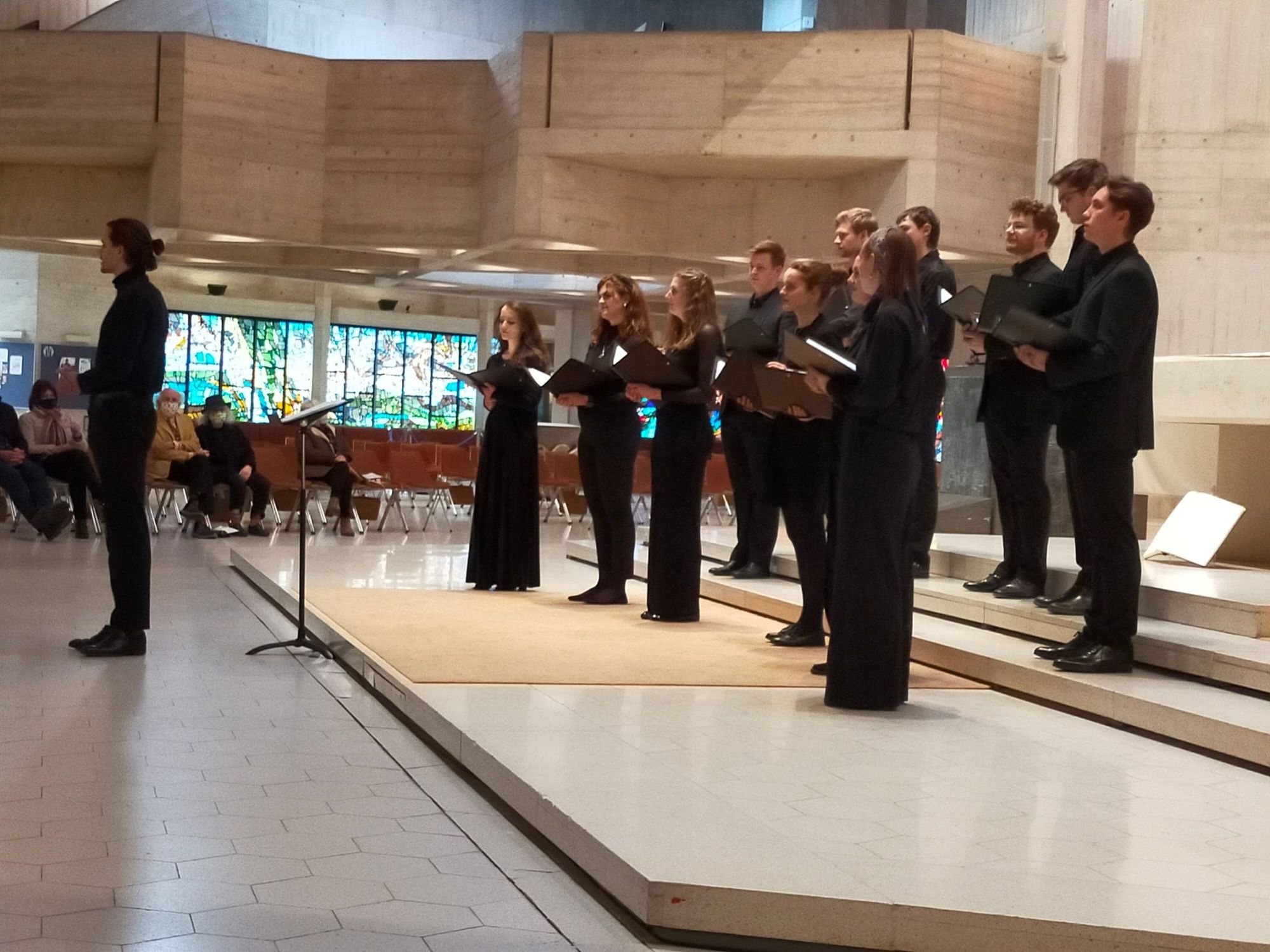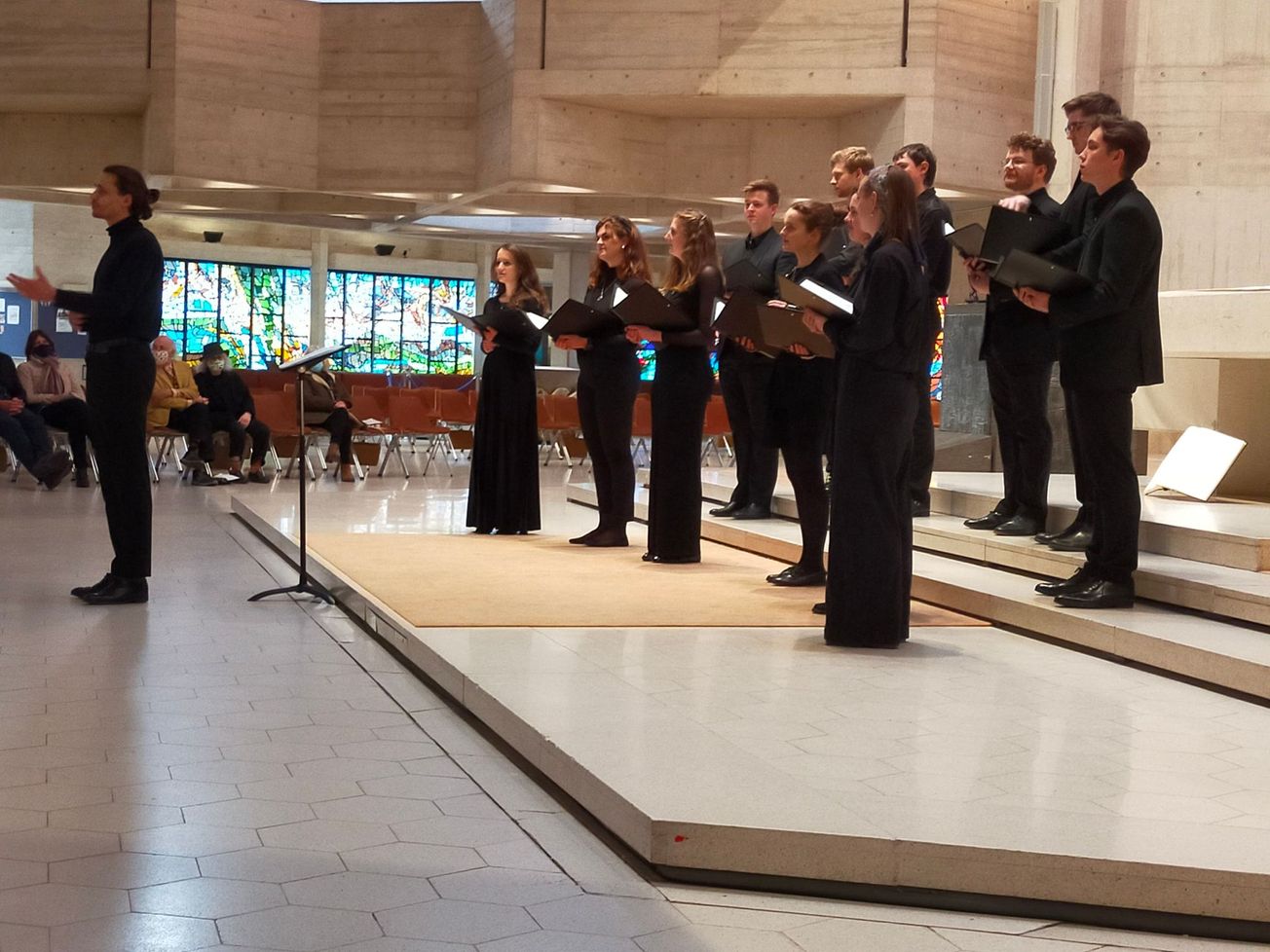By Milan Perera, Second Year English Literature and Community Engagement
Choral music, especially Renaissance Polyphony, remains a niche interest among music genres. It is often branded elitist due to the same social strata it attracts time after time. And without a shred of a doubt, it is the least diverse of all music genres.
To avoid it becoming a relic in the current zeitgeist, it urgently needs artists with an evangelical zeal to bring the ethereal beauty of Polyphonic music to the masses. Freddie Crowley eminently qualifies as one such musical evangelists. He is not your average ‘ kapellmeister’ - choral music may have found its own Nigel Kennedy! Corvus Consort, led by Crowley, performed at Clifton Cathedral as a part of their mini-UK tour, bringing an hour-long enchanted collection of polyphonic gems.
The evening kicked off with a mercurial rendition of ‘Sancte Deus’ by the celebrated English Renaissance composer Thomas Tallis, which belongs to the reign of Henry VIII. Despite the seismic events that took place around religion in England, this piece is reminiscent of a Marian antiphon where voice parts are required to do vocal gymnastics when the bass part is peaking at time above the tenor line. Corvus Consort masterfully executed this choral gem. The extended final amen brought the responsive audience to a tranquil repose.

The audience was then treated to a choral composition 400 years apart with a flawless rendition of John Sanders’ ‘Reproaches.’ It was originally composed for the Good Friday service in Gloucester Cathedral in 1984, but is now widely performed in non-liturgical settings. The choir was split into two sections: one group sang the plainchant line while the other responded in a heavily ornate harmony. The flawless rendition was enhanced by the acoustics of the spacious venue which captured the contrast between Divine steadfastness and human frailty.
The following piece of music, ‘Emendemus in Melius, was of particular significance. The 16th century Portuguese composer Vincente Lusitano is accorded his due recognition only in recent years. As a composer of African descent, Lusitano was almost unknown in choral circles. Originally written for Ash Wednesday, the supplicants were imploring the divine forgiveness for their failings in this haunting rendition.
The audience was then treated to a rare vocal gem that has only come into vogue due to some sterling scholarship. It goes without saying that Renaissance music was exclusively a male domain. But here is a composition of ethereal beauty marked with a simplicity that comes lancing like a ray of sunlight after a dark night. This setting of ‘Stabat Mater’ was by a less known composer, nun and lutenist, Sulpita Cesis, which dates back to 1619. This pertains to the sorrows of Mary following the death of her son. The rendition by the polished choral ensemble of Corvus Consort managed to convey the poignancy of death and the act of grieving to perfection.
The news is out! We are thrilled to have been awarded a grant from the Genesis Foundation as part of their #genesiskickstartfund. @TashminaArtists @Genesis_Fndn @FerioSaxQuartet @ChandosRecords @owainpark @sarahrimkus @RGCWbaritone @jamesmacm https://t.co/gYdhAgie6b
— Corvus Consort (@CorvusConsort) March 30, 2022
Then it was time to showcase the setting of Freddie Crowley. The piece was composed some five years ago and the audience at Clifton Cathedral was given the first public performance of this poignant choral masterpiece.
The penultimate composition for the evening was an evergreen Renaissance choral classic by William Byrd which has been in the choral repertoire since its composition some 400 years ago. ‘Civitas Sancti Tui’ is a lamentation on the destruction of the city of Jerusalem during the Babylonian Captivity. But this is always considered an encrypted political statement on the disintegration of Catholic Church followed by the English Reformation. It is a swan song to vanishing beauty, skilfully captured by the ensemble of Corvus Consort.
The bookending piece for the evening came from the renowned contemporary Scottish composer James MacMillan. A composition of human contrition and Divine forgiveness was particularly moving during the period of Lent. The ensemble stepped up to the challenge of performing this technically demanding setting of ‘Miserere’ by MacMillan. The composer deftly amplified various elements of Allegri’s immortal setting of ‘Miserere’ much to the delight of the audience who burst into a raucous standing ovation.
Review: Rex Orange County @ Marble Factory
Review: Benjy Sandler - Full Moon Session
Throughout the programme, Corvus Consort demonstrated effortless technical mastery and dazzling vocal virtuosity which provided each individual motet with a burnished finish.
Speaking to Epigram on the selection of the pieces for the evening, Crowley reiterated the importance of introducing and performing less known composers who would have otherwise condemned to oblivion. He was upbeat about their debut album release in September which according to him is a ‘joyful labour of love.’ His boundless energy was infectious. He loved to talk about music without the slightest whiff of ego. As we bid farewell he promised to come back to Bristol for another blissful evening of choral classics.
Featured Image: Milan Perera
Are you a fan of classical music?







